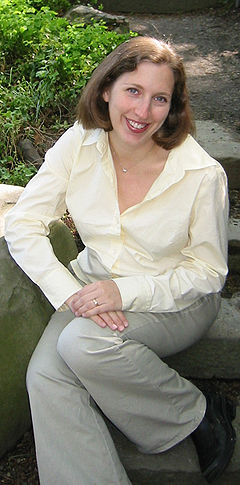 In an essay published in the New York Times Book Review section, Dara Horn surveys contemporary Jewish writers and concludes that Judaism among religions is “unusually friendly to writers.” (A lesson Salman Rushdie may offer to his descendants.)
In an essay published in the New York Times Book Review section, Dara Horn surveys contemporary Jewish writers and concludes that Judaism among religions is “unusually friendly to writers.” (A lesson Salman Rushdie may offer to his descendants.)
Horn selects events from history and discusses how Jewish writers and political leaders interpreted them through Judaism’s lens. She writes:
“This seeking out of patterns straddles the line between fantasy and our desire for real transcendence. It is the very stuff of literature. As Yerushalmi describes it, ‘What was suddenly drawn up from the past was not a series of facts to be contemplated at a distance, but a series of situations into which one could somehow be existentially drawn.’ The fictional teenager who found the rabbi in the freezer would certainly agree.
“That existential possibility makes Judaism into a religion unusually friendly to writers. Memory as an article of faith often comes naturally to writers, who by temperament are likely to be diarists and record-keepers, forever searching past events for elusive patterns — and forever believing that such patterns are to be found. In his essay “The Art of Fiction,” Henry James provided many a future writing instructor with a handy opening-day quote: ‘Try to be one of the people on whom nothing is lost!’ For Jewish writers, this advice is almost unnecessary.”
Mindful of the upcoming Jewish New Year, she offers an interpretation of British novelist Naomi Alderman’s belief that Passover is accompanied by a historically rooted anxiety:
“. . . .It suggests a mystical and irrational belief in a type of memory no neurologist would recognize, a phenomenon both uncanny and eternal. It is a belief at once deeply religious and deeply literary, expressing every writer’s secret faith: that time can be stopped, that somewhere, whether in our notebooks, our basements or our spirits, everything is perfectly preserved and recorded, ready to return to life.
That writer’s faith is honored at the Jewish New Year celebrated this week, known in the Hebrew liturgy as the Day of Remembrance. One of its central prayers, composed at least a thousand years ago, describes God as an ideal reader — with humans as the authors of a comprehensive book detailing their own deeds. ‘You remember all the forgotten things,’ the medieval words claim of God. ‘You open the Book of Memories and it speaks for itself, for each person’s hand has signed it.’
“Writers and believers live their lives haunted by the same question: What happens to our days once they disappear? The objective fact is that each day that passes is lost forever, as forbidden to us as the dead. But prayer and fiction offer a different answer. Those lost days still live among us, written in each person’s hand, turned into stories.”
Essay Review
In “Articles of Faith,” Horn’s argument relies on examples from works ranging from the surreal to the magical. These include Steve Stern’s The Frozen Rabbi and Yoram Kaniuk’s The Last Jew. Her separate-reality examples fail to make a compelling case for how mainstream literature achieves what she hopes is “transcendence” by grasping patterns in history’s ruthless, chaotic and, at times, meaningless direction. But she writes with eloquence about how it ought to be — that lost days are somehow not lost in the unrelenting minor holocaust of days.
Essayist Dara Horn @darahorn
Read the full New York Times Book Review essay . . .
Photo credit: Wikipedia Commons
Readings
Share book reviews and ratings with DV,
and even join a book club on Goodreads.

















